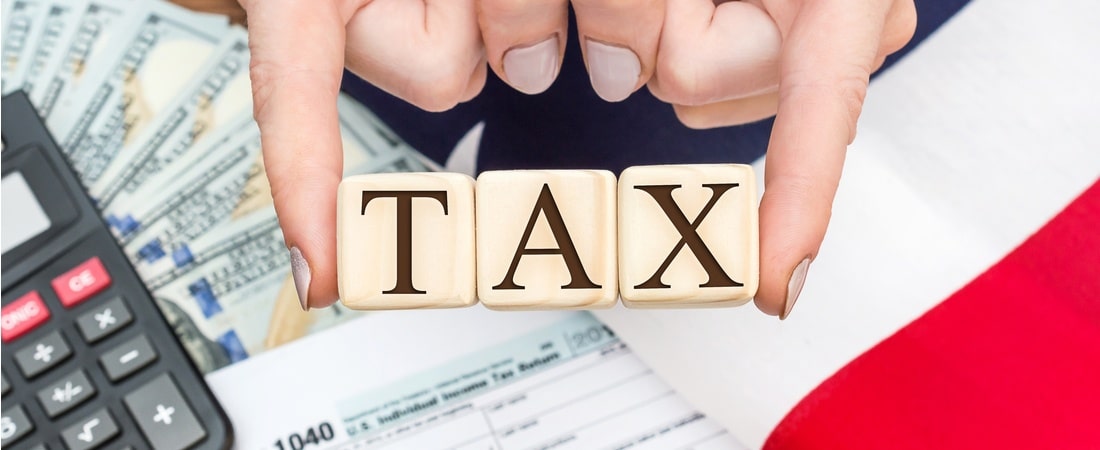How Long Should You Keep Backup Tax Paperwork?

It's easy to feel overwhelmed by the vast amount of tax paperwork we have to keep track of each year. To help manage this, understanding how long you should keep backup tax paperwork is critical for staying organized and complying with legal requirements. Here, we'll break down the guidelines to ensure you're not holding onto unnecessary documents, yet keeping what you need for IRS audits, potential refunds, or future financial analysis.
Why Keep Tax Records?

Retaining tax records is important for several reasons:
- Compliance with IRS Audits: The IRS has the right to audit your tax returns, and they typically do so within three years from the filing date. However, under certain circumstances, this period can extend to six years or even indefinitely.
- Amending Returns: If you find a mistake or need to claim a forgotten deduction, having the backup documentation simplifies the process.
- Future Financial Planning: Tax documents provide insights into your financial history, which can be useful for long-term planning and understanding trends in your income and expenses.
💡 Note: Always refer to the IRS's official guidelines for the most current rules regarding tax record retention.
How Long to Keep Backup Tax Paperwork?

| Document Type | Retention Period |
|---|---|
| Tax Returns | Indefinitely |
| Supporting Documents | 3-7 years |
| Real Estate Records | Indefinitely |
| Stock Transactions | 7 Years After Disposal |
| Investment Property Records | Indefinitely |
| Health Savings Account Contributions | Indefinitely |

Here’s a breakdown:
- Tax Returns: Keep them indefinitely. They are your official record of income and tax paid, which might be needed in case of future queries from the IRS.
- Supporting Documents: Includes receipts, expense records, and other documents like 1099s or W-2 forms. For most taxpayers, keeping these for at least three years is safe, but if you file a return that shows a substantial understatement of income, it's wise to keep records for six years.
- Real Estate Records: These are crucial for calculating capital gains tax when selling property, so retain these indefinitely.
- Stock Transactions: Keep records until seven years after you sell your stocks, as this is the period during which the IRS can audit these transactions.
- Investment Property Records: Similar to real estate, keep all records indefinitely.
- Health Savings Account Contributions: Since these contributions may affect your taxable income, keep records indefinitely.
Exceptions to the General Rules

- Fraudulent Returns or No Returns: If you failed to file a return or filed a fraudulent one, the IRS has no statute of limitations for auditing you. Keep all relevant documents indefinitely.
- Carryforward Deductions: If you carry forward business losses, charitable donations, or capital losses, you need to keep records until the deduction period ends.
- Home Purchase and Renovation Records: Since these can impact the cost basis of your home, maintain them indefinitely to calculate capital gains accurately when selling.
🚧 Note: For specific situations not covered here, consult a tax professional or refer to IRS publications.
Organizing Your Tax Paperwork

Managing your tax documents efficiently can simplify your life when it comes time for an audit or when you need to reference past tax data. Here are some tips:
- Create a Digital Archive: Scan or take pictures of important tax documents. This not only saves space but also makes retrieving documents easier.
- Label Clearly: Use a clear, consistent naming convention for digital files or folders. For example, "TaxYear2022_FormW2" or "TaxYear2022_Donations."
- Categorize by Year and Type: Organize physical documents into folders or boxes by year and document type.
- Shred Old Documents: After the retention period has passed, shred paper documents containing sensitive information.
Final Thoughts

Maintaining a record of your tax paperwork is not just a matter of organization; it's about protecting yourself from potential issues with the IRS and having a clear financial history. While the general rule is to keep most tax documents for three years, understanding the exceptions and the importance of certain documents like real estate records or HSA contributions can save you from future headaches. If you're ever in doubt or facing an unusual tax situation, reaching out to a tax advisor can provide personalized guidance. Remember, being proactive with your records ensures that you're not just avoiding penalties but also positioning yourself for any beneficial opportunities that might arise from your past financial decisions.
How long do I need to keep tax returns?

+
Keep your tax returns indefinitely as they serve as a record of your income and taxes paid. This is important in case of future audits or when reviewing your financial history.
Can I shred tax documents after three years?

+
Generally, yes. However, keep records of real estate, significant investments, or any carryforward deductions indefinitely, or as otherwise required by your specific circumstances.
What should I do with my health savings account records?

+
Retain all records related to Health Savings Account (HSA) contributions indefinitely. These contributions can affect your taxable income.



